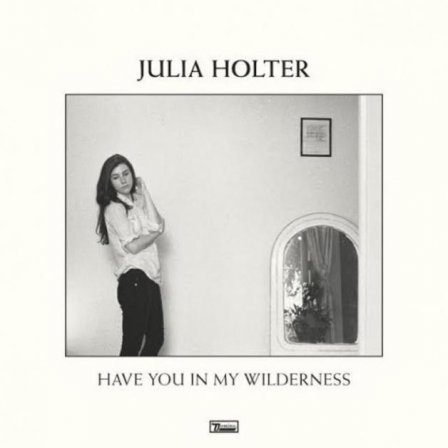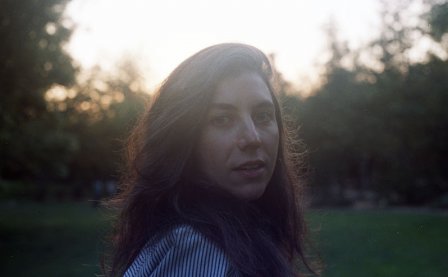A Short Essay On Have You In My Wilderness
The issue is the possibility of love, as Avivah Zornberg begins
her recent book Bewilderments on wilderness
and the accompanying wandering,
the lonely wandering,
of people in search of their desire.
Desire is polyphonic,
as Lacan knew,
independence encircling independence,
drifting amidst,
a framework in which things fit
and don’t.
In this respect,
love songs are always a convergence
of form and content.
I wish I could scribble notes in the margins of songs.
Listening, I wander in my own wilderness,
and I want to drag my finger
through sand and water
and write my way back—
Late last night, I was listening
to “Betsy On The Roof.”
As I walked, a cat scrambled
to avoid me. But it stopped,
opened its mouth,
fell to the sidewalk,
stood up and rubbed
against me.
It’s a question of territory, of whose is whose.
The cat watched me as I walked away,
curiously,
under a streetlight.
Have You In My Wilderness is all about
walking away
and looking back,
the content of desire and its form,
the voice in search of clarifying itself,
The way, when we climb a mountain,
Stevens wrote,
Vermont throws itself together.
Everyone with whom I’ve talked
about this album has drawn —
in their own way —
the same conclusion:
But I don’t want to conclude just yet.
So allow me some words on citations
and annotations.
Citations, as you’ve seen this far,
are a crutch. But crutches
serve a useful function:
balance, above all, but
also a transfer of power
to another body,
polyphonic legs to aide
in our wandering.
Julia Holter has been best known for who she cites,
perhaps to the detriment of the reception
of her art.
Good writers are good readers,
but the reverse isn’t necessarily true:
and as a writer, I’ve struggled both
to hear and to write beyond
points of reference.
Yet, in this bewildered album,
the citations are buried.
Perhaps, for the first time,
for the most part,
the song that she is singing
is her own.
Can you hear the difference
voices make,
unaccompanied?
Which brings me to annotations —
and then I’ll conclude —
and to a memory I have of a book
by Roni Horn, Another Water,
another voice in the wilderness,
and how I think it makes sense
of what I’m hearing, here.
Throughout are photos of the River Thames.
Points of water are numbered,
and running along the bottom of the page
are annotations, like (405)
“You walk, and the river runs…”
“…one thing leads to another and another
and another.”
Perhaps the most intriguing thing
about Holter’s wilderness
is how the songs themselves
wander through it.
The ocean stands as a central metaphor.
Night, too.
But it’s as simple, no,
yes, as the unfolding of desire.
It’s the subversion of the tyranny
of the pop song and the aural manifestation
of desire’s drift,
or trudge,
wherever it goes.
In the background, throughout, her voice
annotates,
in stunning polyphony,
like Horn’s watery associations,
the unknowable trajectory
that each song always already
takes.
If the result must be quantified here,
so be it,
but I keep listening, and I’m still surprised
by what I hear,
where I go,
and how it is
that I manage to end up there.
More about: Julia Holter




